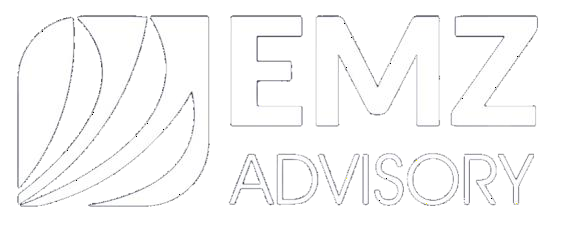IS YOUR BUSINESS STRATEGY PROCESS PREPARING YOU FOR POST-PANDEMIC SUCCESS?
Being consumed by strategy planning during the pandemic era has only stood to reaffirm the old adage that says that the only constant changes. This could not be truer for most organisations within the business environment – which are constantly required to navigate uncertainty, challenges, and disruption to grow and evolve. Now more than ever, many organisations are expected to be agile when these change events arise in order to simply survive.
Whilst the unprecedented, ongoing global COVID-19 pandemic has had a fundamental impact on organisations, necessitating a response, it has further offered a catalyst for change for organisations who wish to remain relevant and create sustainable business practices that drive trust. The challenges and opportunities revealed by the pandemic can be witnessed through the various organisations that have either caved, survived, or thrived.
In response to the pandemic, organisations are under pressure to go back to their foundation and continuously revisit their overall strategy. Assessing one’s organisational strategy through a forward-looking lens, underpinned by innovation and dexterity, will ensure that organisations can respond to the immediate crisis and medium-term challenges, but equally important, that organisations can equip themselves for long-term renewal and prosperity within the ‘new’ business as usual environment.
Whilst ongoing strategic planning and review exercises may be a relatively ordinary course for most organisations, many organisations are finding it more overwhelming at this juncture, given the amount of change and “out of the box” thinking required when planning for this reenvisaged future. Organisations worldwide and our clients alike have been encouraged to rely on the support and facilitation of strategic planning and implementation experts – thus directing them out of the uncertainty with customised guidance and relevant and realistic goals, whilst deriving tangible, agile implementation plans.
Evidently, challenges arising from the pandemic are also bringing to light existing issues that have already impacted organisational success, thereby compounding the impact of the pandemic. As such – much like the human immune system – leadership is required to mount a balanced response to the pandemic as well as to existing but unaddressed dynamics within the organisation (including but not limited to: unclear vision/mission, misalignment between goals and strategic priorities, protecting financial returns, leadership team dynamics, limited understanding of customer needs and expectations, lack of transparency or clear communication, misalignment between business units, and insufficient change management).
We believe that organisations do have the capability to get started and salvage their strategy through to execution by simplifying the approach and revisiting their core drivers. Consideration of the following impact drivers, when reviewing your organisation’s strategy, will influence the extent to which you are able to achieve post-pandemic success:
Collaboration and Communication
Establish a consistent and inclusive approach to working across the organisation. The strategy does not rest purely with the leadership team – it needs to filter down through the business – thus internal and external stakeholder input and buy-in are imperative to co-create and realise the strategy. We are seeing board members now more than ever wanting to contribute to the earlier stages of the strategic planning process. This emphasises the critical nature of uniting all stakeholders through a common purpose, creating effective teaming relationships, and leveraging strengths.
Culture and Commitment
A strategy is only as good as the culture and implementation plan that supports it. As such, value-driven behaviour; SMART action plans (that consider people, process, structure, technology, etc.) and governance are essential to foster commitment, accountabilities, and prioritisation of high-impact initiatives. In addition, an organisation-wide strategy must be tailored to each business unit so that there is an understanding of how each contributes to the success and fits into the value chain.
Courage and Change
Leadership needs to lead by example, and demonstrate to their people, customers, and shareholders, that they can take charge. This means moving out of their comfort zone to be bold, aspirational, open-minded, honest, vulnerable, transparent, and empathetic. In driving organisational change, leadership should try to leverage the principles of design-thinking by starting with the end in mind so that they are able to learn quickly, be proactive, and build resiliency. That said, with any change, a robust change management plan needs to be in place, to take your organisation on the journey with you.
Customer and Current Landscape
Retention should be the priority, but this is hinged on understanding who your customers are, creating a single view, and being customer-centric to tailor products, services, and engagement to customers’ evolving needs. Beyond this, organisations need to remain current on what is happening within their organisation, locally and globally to ensure that all decisions are underpinned by relevant and in-depth research and analysis. This will also enable proper business case development and prioritisation for investments across the business.
As with all key decisions, strategy review and implementation reside with everyone in an organisation. As EMZ Advisory, after almost a year of continuing to support organisations towards post-pandemic success, we pride ourselves in expertise as we partner with organisations to optimise their strategic planning process – ensuring that organisations co-create it, buy into it and own it end-to-end while upholding their values along the way – supported by robust implementation plans to achieve their success
What some of the leadership our blue-chip clients had to say about our service offerings:
“First strategy session where I know what I am walking away with to work on (practical)”
“I see the commitment of the team, if we stay on this path, we will achieve what we need to”
“Pushed to be solution driven”
“Know what to tell our teams to focus on”


